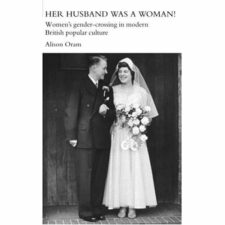A talk given at the House of Lords, London, on 5 June 2014 as part of a seminar on ‘Oppression, Repression and Resistance – Renouncing the Fundamentalist Yoke’, organised by WWAFE (Women Worldwide Advancing Freedom & Equality (Pt I).

I was listening to a radio discussion about airport security. The issue was whether all passengers should be treated equally – i.e. thoroughly searched before being allowed to board a plane – or whether resources should be concentrated on people who ‘look like terrorists’.
Some people (it was argued) are obviously not terrorists: newborn babies for example. And nuns. Nuns are mild, gentle people who wouldn’t say boo to a goose, let alone blow up a plane. They can be safely waved through after only the most cursory of searches. That was the view of one of the speakers.
But somebody else thought nuns should be regarded as prime suspects, because what could be more fundamentalist than a nun? Nuns believe so strongly in the truth of their religion that they dedicate their whole lives to it. They live in like-minded communities, and spend many hours in rituals of religious devotion, serving a god who, they believe, has a special mission for them – their vocation. A god who, if they follow their vocation obediently will reward them with eternal bliss, but who, if they don’t, may send them to hell.
That is exactly the sort of mindset, the speaker argued, which motivates religiously-minded suicide bombers.
I mention this debate not because I have any reason to believe that any of the Catholic nuns who educated me in the 1950s and 60s were terrorists, but because one of our topics this evening is fundamentalism, and I want to underline the point that it is a word that means different things to different people.
a) For the speaker on the radio,’fundamentalist’ meant ‘religiously devout and therefore a possible terrorist’.
b) In the Oxford dictionary, fundamentalism is ‘strict maintenance of the doctrines of any religion, according to a strict, literal interpretation of scripture.’ That’s neither good nor bad: it depends on the doctrines.
c) Sometimes the word ‘fundamentalist’ is used is to mean ‘theocratic’, describing a religion that has a role in government. The Church of England would be an example of this.
d) A fourth way in which the word ‘fundamentalist’ is used is to describe patriarchal men who pursue their favourite hobby of controlling, exploiting and oppressing women, and who seek to justify this by reference to religion.
In her book Man’s Dominion: the Rise of Religion and the Eclipse of Women’s Rights, Sheila Jeffreys suggests that the term ‘fundamentalism’should be avoided, because it seems to suggest that religion is OK as long as it isn’t fundamentalist.[1]
In Jeffreys’ view, any belief system which is based around the worship of a male godhead, deference to a male hierarchy, and the control of women’s sexuality, will always be bad news for women. And that is my view too.
Jeffreys bases her arguments on Judaism, Christianity and Islam. I’m confining my comments to Christianity – specifically Catholicism. I’m not a Catholic and never have been, but I spent 14 years as a day-pupil in a Catholic convent school.
Why? I hear you ask. And I have wondered that myself. In defence of my late parents, who weren’t Catholics either, or even particularly interested in the Church of England to which our family nominally belonged, I can only say it must have seemed like a good idea at the time. The Catholic school was nearby, its girls behaved well on the buses, and the school had a good (and, as it turned out, well-deserved) reputation for getting its pupils through exams.
Non-Catholics were welcome, but we had to take part in group prayers, which occurred up to seven times a day, and which often involved special body-movements: head-bowing, genuflection, the sign of the cross, the dipping of fingers into holy water. We had to study Catholic theology, take exams in it, and show proper respect for its beliefs. For example:
- God created the universe. His power over it is absolute and eternal. But if anything goes wrong – floods, famines, droughts, diseases, storms, snakebites – it’s not his fault, it is ours.
(My religious education was not, of course, phrased in those terms – I’ve tried to translate the evasive, slippery language of some Catholic theology into plain English so that we know what we are talking about.)
- God forgives wrongdoers who repent. But the price of his forgiveness is that Jesus, who was God’s son and who never did anything wrong, had to be tortured to death through crucifixion. God could have intervened to save Jesus, but he chose not to. Yet God is to be regarded as a loving father.
- God created all human beings equal, and in his image. But he won’t tolerate lesbianism, male homosexuality or women priests.
- The use of pharmaceuticals or barriers to prevent conception is against natural law and are therefore sinful. But it’s fine for women to take their temperature every morning, peer closely at their vaginal secretions, use the data to draw a graph indicating when they are least likely to conceive, and confine sexual intercourse to those times. This sort of behaviour is apparently natural.
- Warfare and judicial execution are, in many circumstances, acceptable. But abortion never is, because it involves killing a human being. .
These are the sorts of things that my Catholic friends were raised to believe, and I, sitting beside them, was warned that I had better believe them too. These doctrines are still alive and well in Catholic catechisms and textbooks today. [2]
Zoe Fairbairns (c) June 2014
Zoe Fairbairns studied at theUniversity of St. Andrews, Scotland, and College of William and Mary, USA. Former poetry editor of Spare Rib,she is a freelance journalist and creative writing tutor, holding appointments as Writer in Residence at Bromley Schools (1981-3 and 1985-9), Deakin University, Geelong, Australia (1983), Sunderland Polytechnic (1983-5) and Surrey County Council (1989). A widely acclaimed novelist and nonfiction writer, her first novel, Live as Family, written at seventeen, was published in 1968, followed in 1969 by Down: An Explanation, whilst still at university. Benefits (1979) was followed by five further novels: Stand we at Last (1983), spanning 120 years, three continents and five generations of women living through Victorian repression, prostitution, the suffragette movement, war and the women’s movement; Here Today (1984), awarded the 1985 Fawcett Society Book Prize; Closing (1987), depicting working women caught between feminism and Thatcherism; and Daddy’s Girls (1992), three sisters enmeshed in a family’s secrets. Zoe Fairbairns’ most recent novel, Other Names, was published in 1998.
[1] Sorry I can’t give a page number – my Kindle only does percentages. It’s in the Introduction, at 2%. [2] See for example the Catholic Truth Society’s Catechiism of Christian Doctrine (2013); Brian Singer Towns et al: The Catholic Faith Handbook for Youth (St Mary’s Press 2008); and Religious Education Curriculum Directory for Catholic Schools and Colleges in England and Wales (Catholic Bishops Conference of England and Wales 2012)For Pt 2 – http://womenshistorynetwork.org/blog/










